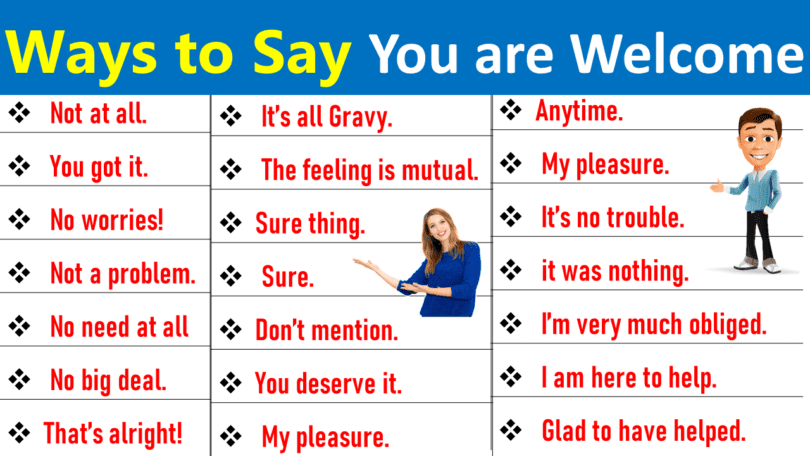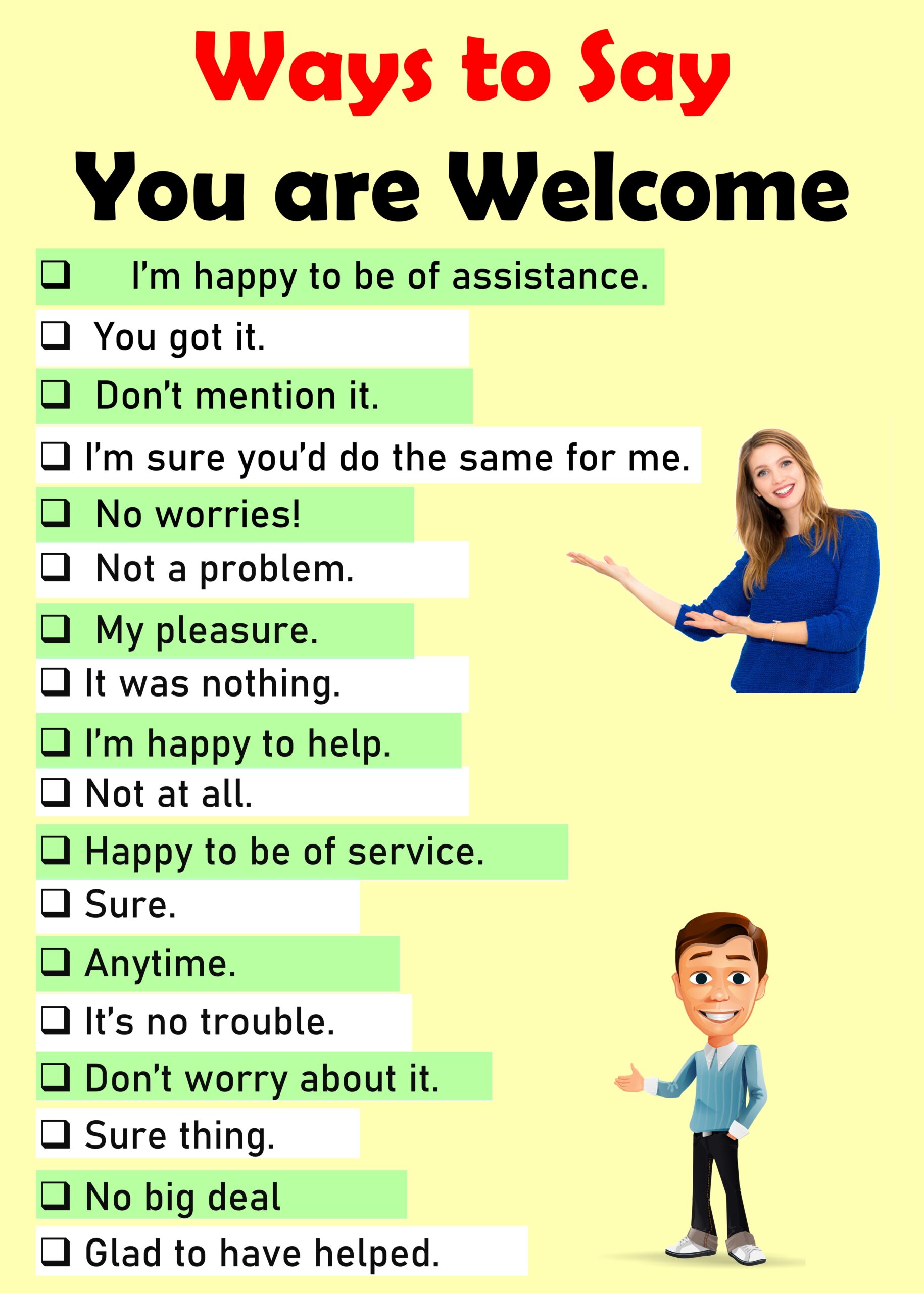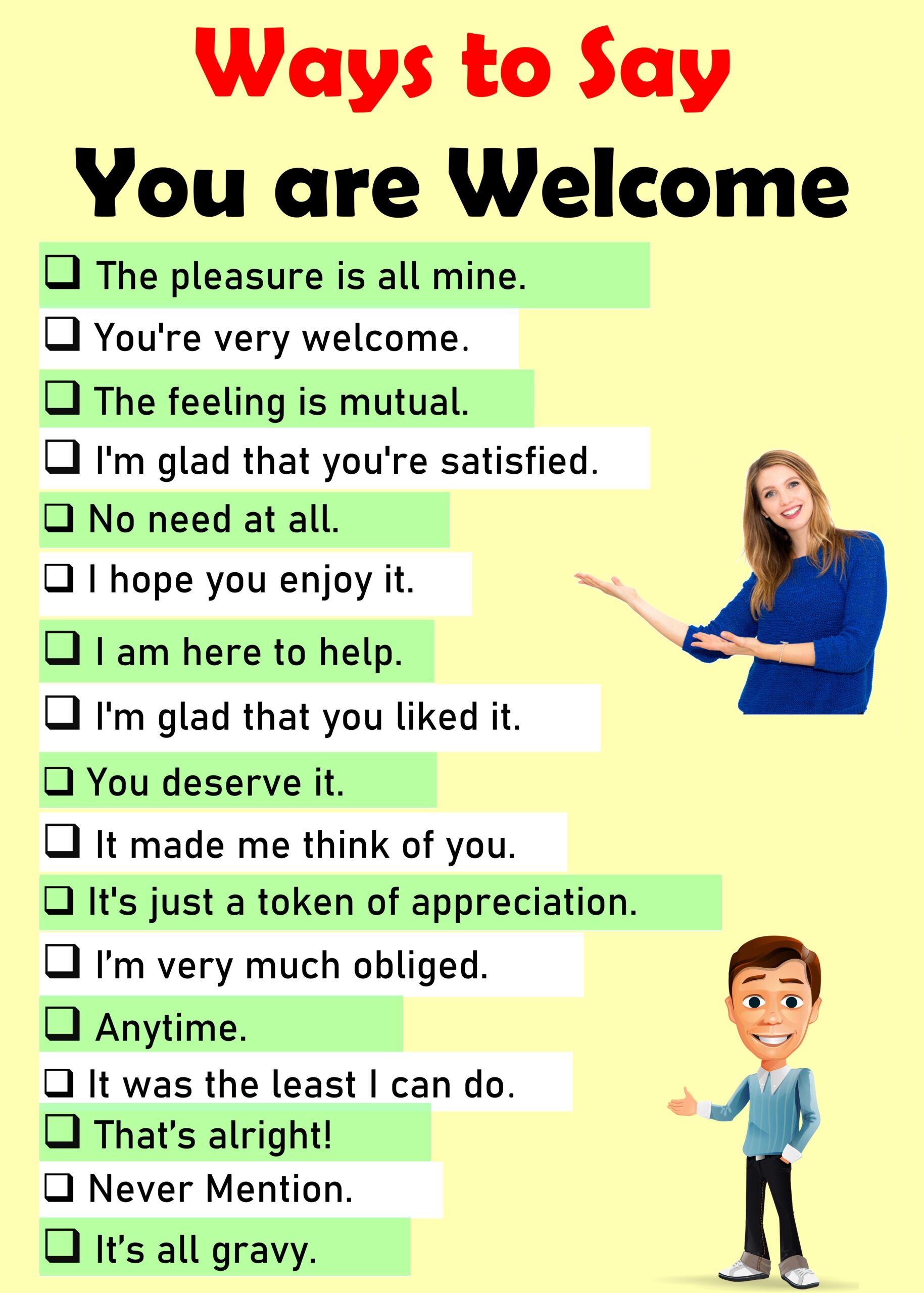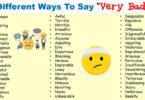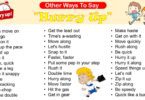Expanding your ways of saying “You’re welcome” in English is important for better communication and cultural understanding. While “You’re welcome” is a common reply to thanks, learning other phrases like “No problem,” “It was my pleasure,” or “Don’t mention it” can make your interactions more varied and meaningful.
By having different responses in your language toolkit, you can adjust your replies based on the situation and your relationship with the person thanking you. This flexibility helps build stronger connections with others, showing that you care about their feelings and preferences.
Learning alternative responses also promotes cultural sensitivity. English is spoken worldwide, but its usage differs across regions and cultures. Using different ways to say “You’re welcome” shows respect for diverse customs and languages, which is crucial in international settings or when meeting people from different backgrounds.
Other Ways to Say “You are Welcome”
- Don’t mention it.
- No worries
- Not a problem.
- My pleasure.
- It was nothing.
- I’m happy to help
- Not at all.
- I’m happy to be of assistance.
- Happy to be of service.
- I’m sure you’d do the same for me.
- It was nothing
- It’s no trouble
- Sure thing
- Don’t worry about it
- No big deal
- Glad to have helped.
- The pleasure is all mine.
- You’re very welcome.
- Glad to help!”
- The feeling is mutual.
- No need at all.
- “I’m glad that you’re satisfied.
- I am here to help.
- I hope you enjoy it.
- I’m glad that you liked it.
- “It’s just a token of appreciation.”
- You deserve it.
- It made me think of you.
- Thank you!
- That’s alright!
- It was the least I could do.
- I’m very much obliged.
- You are truly welcome!
- That’s fine!
- Forget it!
- Anything for you!
- You are quite welcome!
- it’s all Gravy.
- You got it.
You May Also Like
Other ways to say I Don’t Know

